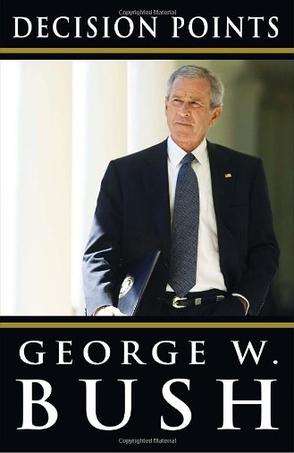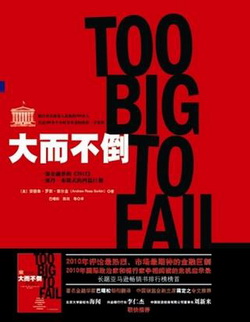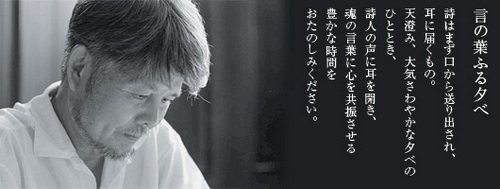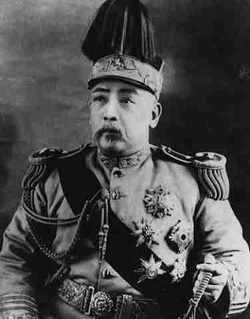

 The Tears, or "Lacerates," of George W. Bush
The Tears, or "Lacerates," of George W. Bush
By Nan Qiao (南橋)
[Focus] p. 5
Original Article: [Chinese]
Decision Points (決策點(diǎn):布什回憶錄)
George W. Bush
Crown, November 2010
Former president George W. Bush's eagerly awaited memoir Decision Points was published last month. Despite what can be construed as a disastrous two terms in office, Bush's silence in relation to the performance of president Obama has been praised by politicians and the public. Bush's memoir revisits key "decision points" that he met throughout his life, including 911, Hurricane Katrina, the wars in Afghanistan and in Iraq and so on. The book's theme, that decisions have to be made and that he was the one to make them, presents a caricature of himself as "the decider." Furthermore, such an approach also skates over the devastating consequences of his actions. But the book does succeed in impressing upon readers the fragmented nature of the intelligence and the confusion that surrounded situations like 911.
Bush's conversational style is more appealing when describing his civilian life and his time at Yale. He makes charming jokes about media depictions of him as an ignorant bumpkin, and is open about the periods of emotional hardship. He tells an anecdote about how for a high school assignment, he wrote "lacerates were flowing down my cheeks" instead of "tears", to describe the his emotional state after his sister's death. The most enjoyable part of the book, however, is Bush's accounts of meeting and engaging with international dignitaries. History will judge his presidency. But for now, Bush's memoirs are interesting if not always insightful, and are written, as he intended, in plain-English.
This Month in Literature:
Yan Lizhong (晏禮中) reviews Bill Porter's Zen Baggage: A Pilgrimage to China (2010)
Wang Jiaxin (王家新) considers the works of Herta Müller, including the latest to be translated into Chinese: Die blassen Herren mit den Mokkatassen (The Pale Gentlemen with their Espresso Cups) (托著磨卡杯的蒼白男人) (2010)
Qin Jihua (秦繼華) reviews Ma Ainong's (嗎愛農(nóng)) translation of E. Annie Proulx's Pulitzer-prize winning novel The Shipping News (船訊) published in 2006.
Money, Bubbles, and Greed on Wall Street
Yang Yu (揚(yáng)羽)
[Highlight] p. 19
Original Article: [Chinese]
The Economic Observer presents a tour through the booms and busts of Wall Street by those who knew it the best.
2008: Quick! Save the Money! 
Too Big to Fail (大而不倒)
by Andrew Ross Sorkin
Viking, October 2009 (Chinese translation published September 2010)
Following Lehman Brothers collapse, former New York Times journalist Andrew Ross Sorkin published Too Big to Fail, a fast-paced thriller that takes you inside the Wall Street collapse that led to an international financial crisis. Compiled from over 200 interviews, Sorkin's book is an engaging and impressive narrative and a journalistic feat.
House of Cards: A Tale of Hubris and Wretched Excess on Wall Street (貝爾斯登-華爾街的榮耀、貪婪與毀滅)
by William D. Cohan
Doubleday, March 2009 (Chinese translation published October 2010)
Cohan's book takes us inside the Bear Stearns collapse showing us the implosion that was a product of unnecessary risks, catastrophic mismanagement, and lax government regulations.
 On the Brink: Inside the Race to Stop the Collapse of the Global Financial System (峭壁邊緣)
On the Brink: Inside the Race to Stop the Collapse of the Global Financial System (峭壁邊緣)
by Henry M. Paulson Jr.
Business Plus, Feb 2010 (Chinese translation published April 2010)
Paulson, who served as US Treasury Secretary from January 2007 to 2009, provides a first person account of the financial meltdown and the decisions that had to be made. Paulson details how he worked together with the Federal Reserve, President Obama and Congress to devise policies to keep the US financial system afloat.
Summary: Cohan, Sorkin, and Paulson all depict the meltdown of the international economy as expressly dependent on the decisions of a handful of powerful men. All three books are written like narratives and in at least two, the villains are clear. The collapse of the Wall Street machine was not a tragedy or a natural disaster. It was a preventable implosion caused by the insatiable greed of powerful CEOs and its victims are the rest of us.
1960s
The Go-Go Years: The Drama and Crashing Finale of Wall Street's Bullish 60s (沸騰的歲月)
by John Brooks
Wiley, 1999 (Chinese translation published Oct 2006)
John Brooks surveys the rise of the "go-go" grow stocks of the 1960s which caused the market to soar for nearly a decade and brought enormous wealth to a number of investors. The story is more or less a cautionary tale and features key players of the 60s like H. Ross Perot who lost 450 million dollars in a single day when the market crashed in 1970. Throughout the work, Brooks occupies the moral high ground and is scathing about the greed and careless practices of Wall Street that led to the series of market crashes in the 1970s. His language seems common place now, but was revolutionary at the time of publication.
 1970s
1970s
Den of Thieves (賊巢)
by James B. Stewart
Simon and Schuster, 1992 (Chinese translation published May 2010)
The Pulitzer-prize winning writer accounts the series of insider trading scandals of the 1980s involving Wall Street financiers like Ivan Boesky and Michael Milken. Milken and Boesky made billions from the networks of speculators on high-yield bonds in the 1970s and 1980s. Boesky pleaded guilty to securities fraud in the 1986 and implicated Milken in his plea. Milken was indicted in 1989 and sentenced to ten years in prison in 1990. Milken was one of several influences for the character of Gordon Gekko in Oliver Stone's Wall Street. Stewart's book is investment classic and is a crucial entry in the history of Wall Street.
1980s  Liar's Poker (說謊者的撲克牌)
Liar's Poker (說謊者的撲克牌)
by Michael Lewis
Penguin, October 1990 (Chinese translation published Jan 2007)
Liar's Poker is a bar game popular among gamblers. Michael Lewis accounts his experience as a bond salesman on Wall Street in the late 1980s. The book traces his own experience at Salomon Brothers and the inside culture of bond traders. The book is also an invaluable depiction of the investment climate in the 1980s which was marked by a lack of regulations, greed, and easy money.
The Early 90s
F.I.A.S.C.O: Blood in the Water on Wall Street (泥鴿靶)
by Frank Partnoy
W. W. Norton & Company, Oct 1997 (Chinese translation published July 2004)
Frank Partnoy, a former derivatives trader from Morgan Stanley, gives a picture of the market and the game of derivatives trading in the early to mid-nineties. Partnoy is unsparingly critical of the entire derivatives market, what he sees as an elaborate ruse aimed at making insiders rich. He tells about the hidden and fraudulent tactics of Morgan Stanley executives and is scathing of the consequences they inflict on the US financial system.
The Late 90s
When Genius Failed: The Rise and Fall of Long-term Capital Management (賭金者)
by Roger Lowenstein
Random House, Oct 2001 (Chinese translation published July 2006)
Lowenstein, American finance journalist, traces the story of LTCM, an American hedge fund that reached over 100 billion in assets and had a return of 40% per annum at its height between 1994 and 1998. The principals of the fund included elite leaders and Nobel laureate economists. When the leveraged bets threatened to bring down LTCM, the Federal Reserve Bank gathered a bailout of $3.6 billion.
The Top Ten Movies about Money
1. Wall Street (1987)
2. Trading places (1983)
3. The Sting (1973)
4. Boiler Room (2000)
5. Ocean;s Eleven (1960)
6. It's a Mad Mad Mad World (1964)
7. Casino (1995)
8. Glengarry Glen Ross (1992)
9. The Treasure of the Sierra Madre (1948)
10. American Psycho (2000)

An Interview with Takahashi Mutsuo (高橋睦郎)
by Li Xiang (李翔)
[Dialogue] p. 16
Original Article: [Chinese]
Takahashi Mutsuo, 73, is one of Japan's best-known poets. He has written dozens of volumes of poetry and essays. The EO's Book Review sat down with Takahashi to discuss his works and his life as a writer. This is a selection from interview:
EO: What is the essence of literature?
Takahashi Mutsuo: To be honest, I'm not sure. That is why I write, because I do not know. If I knew, perhaps I would stop writing. I have never wanted to be an author; I was happy being a reader. Reading brings me joy and comfort.
EO: Were you motivated to write by curiosity?
Takahashi: Yes, but not just idle curiosity. The question of existence, of being stirred my curiosity.
EO: How did you come to consider this question?
Takahashi: In my second year of high school, I stood on the table to clean the light and suddenly, when I was stepping down, I couldn't feel my own existence. From then on , whenever I had time, I began to think about whether I would be happier if I never existed.
EO: Do you read your own work?
Takahashi: No. I would rather write something new. Of course, everything I am responsible about everything I write. But I don't often go back to read them.
EO: What do you hope your readers will take away from your work?
Takahashi: I have never thought I had something to give to my readers. My works have never brought anything to me. The only thing my works have ever given me is the feeling that writing shouldn't be like this, so I keep writing.
EO: How did you develop your style?
Takahashi: I have always thought that literary works should not have a style. If people believe my works have a style, it is a shortcoming in my writing. If an author has a style, he sets limits; I want to avoid limits; if not, it's pointless to continue writing.
EO: Do you think Western or Eastern poets have had more influence on your work?
Takahashi: On the surface, it is the Western poets, but underneath, it is the Eastern ones. I am a Japanese poet first, I cannot ignore the thousands of years of Japanese influence. The language does not belong to me; it belongs to Japan. The West is the clothing I wear; Japan is the blood in my veins.
 Historian Hou Yijie Discusses his past and his work on Yuan Shikai
Historian Hou Yijie Discusses his past and his work on Yuan Shikai
By Xu Zhiyuan (許知遠(yuǎn)), Li Xiang (李翔) and Tan Xufeng (譚旭峰)
[Academic] p. 16
Original Article: [Chinese]
The Life of Yuan Shikai (袁世凱專)
by Hou Yijie (侯宜杰)
Baihua Literature and Art Publishing House, May 2003
Hou Yijie developed an interest in history during the tumultuous forties and fifties. He attended college during the early years of the Cultural Revolution. Looking back, Hou recalls that he only attended two classes a day and that books were rare and the libraries were always closed.
He first published his The Life of Yuan Shikai in 1982. Hou tells us, "a year before my book was published, I came across a biography titled Story of Yuan Shikai I had to force myself to finish it. I wanted to write a biography that readers can and want to read. If someone like me, a Yuan Shikai researcher, can barely finish the book, then how is an ordinary reader supposed to approach it?"
Yuan Shikai grew up in Xiangcheng and gained influence through his participation in the Sino-Japanese war. Yuan's loyalty to the Empress Dowager and his role in quashing the Boxer Rebellion earned him political prominence. After that, Yuan became a crucial figure in all the reforms of the late Qing dynasty. After instigating the abdication of the child emperor, Yuan declared himself emperor, which shattered his political reputation and energized the nationalist opposition.
Hou is adamant about Yuan's impact on Chinese history: "If it had not been for abdication of the child emperor, Yuan's railway reforms, the Revolution of 1911 would not have happened." But despite his devoted interest in his subject, Hou maintains the measured attitude of a seasoned historian. He warns us that despite Yuan's impact, he was still just a man. Political figures always place their own interests and their own futures first. The perspective that claims Yuan was a complete visionary, that he had the world in mind when he did what he did, Hou insists, is absurd.
Also in Academic:
Liu Yuhai(劉玉海) reviews Of Rule and Revenue (1989), by Margaret Levi.
Li Yinchu (李寅初) reviews Conversations with Wang Hui (別求新聲: 汪暉訪談錄)
Yin Minzhi (尹敏志) revisits Hannah Arendt's classic, The Origins of Totalitarianism (極權(quán)主義的起源)
Links and Sources
EO's Book Review: Official Site
Douban: EO\'s Book Review
Sina ishare.iask: PDF of December Issue
Economic Observer: November Issue of EO\'s Book Review
Economic Observer: October Issue of EO\'s Book Review
This article was edited by Paul Pennay